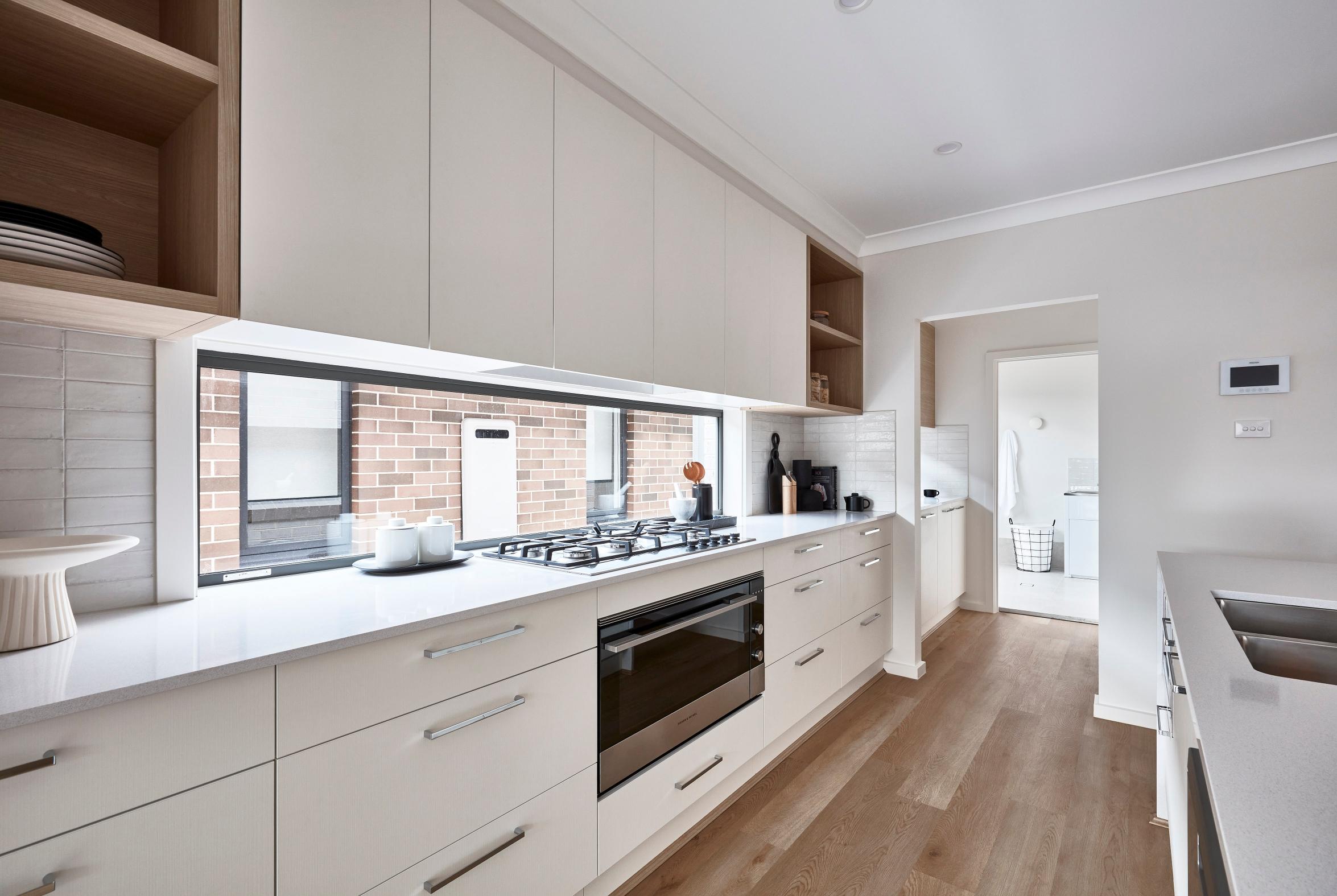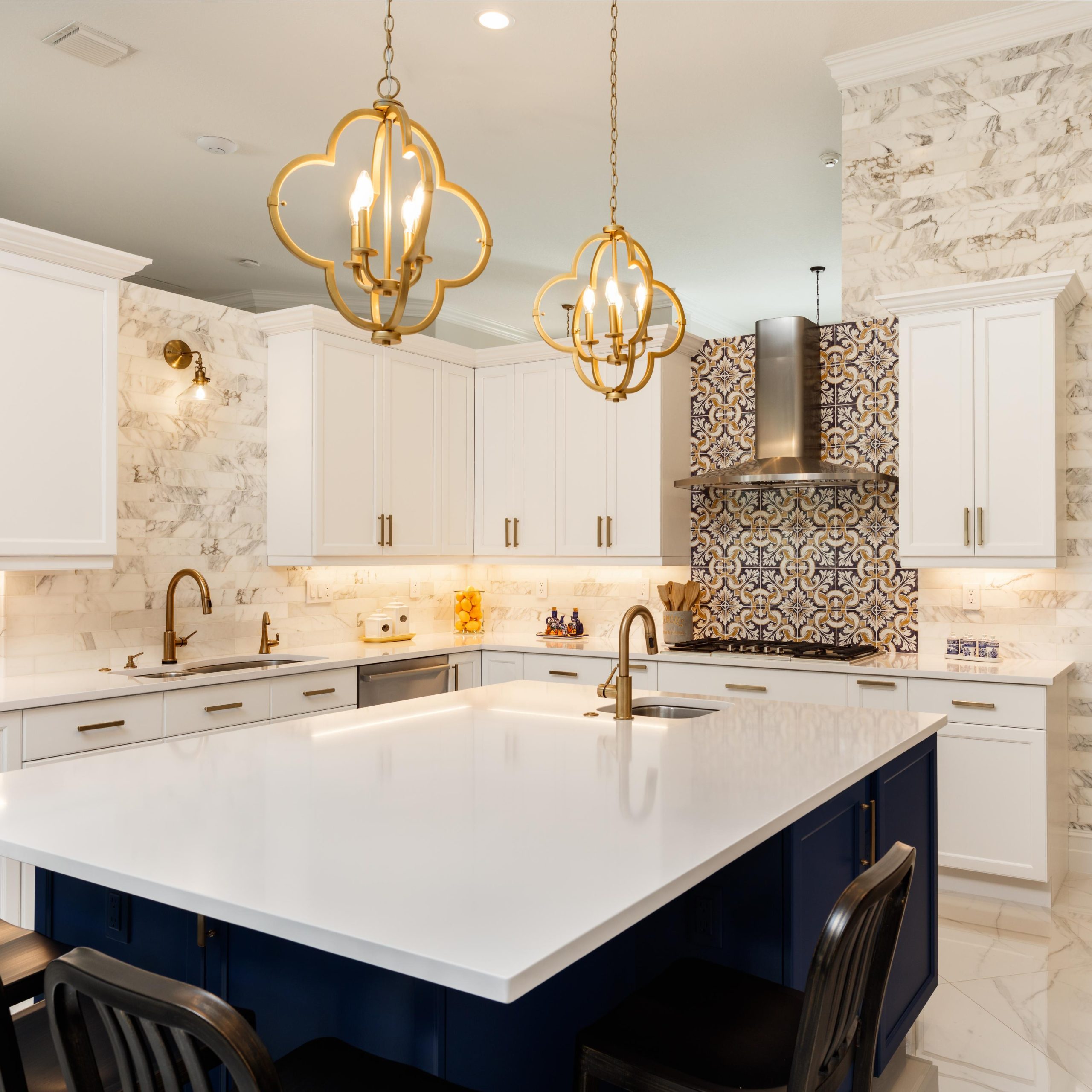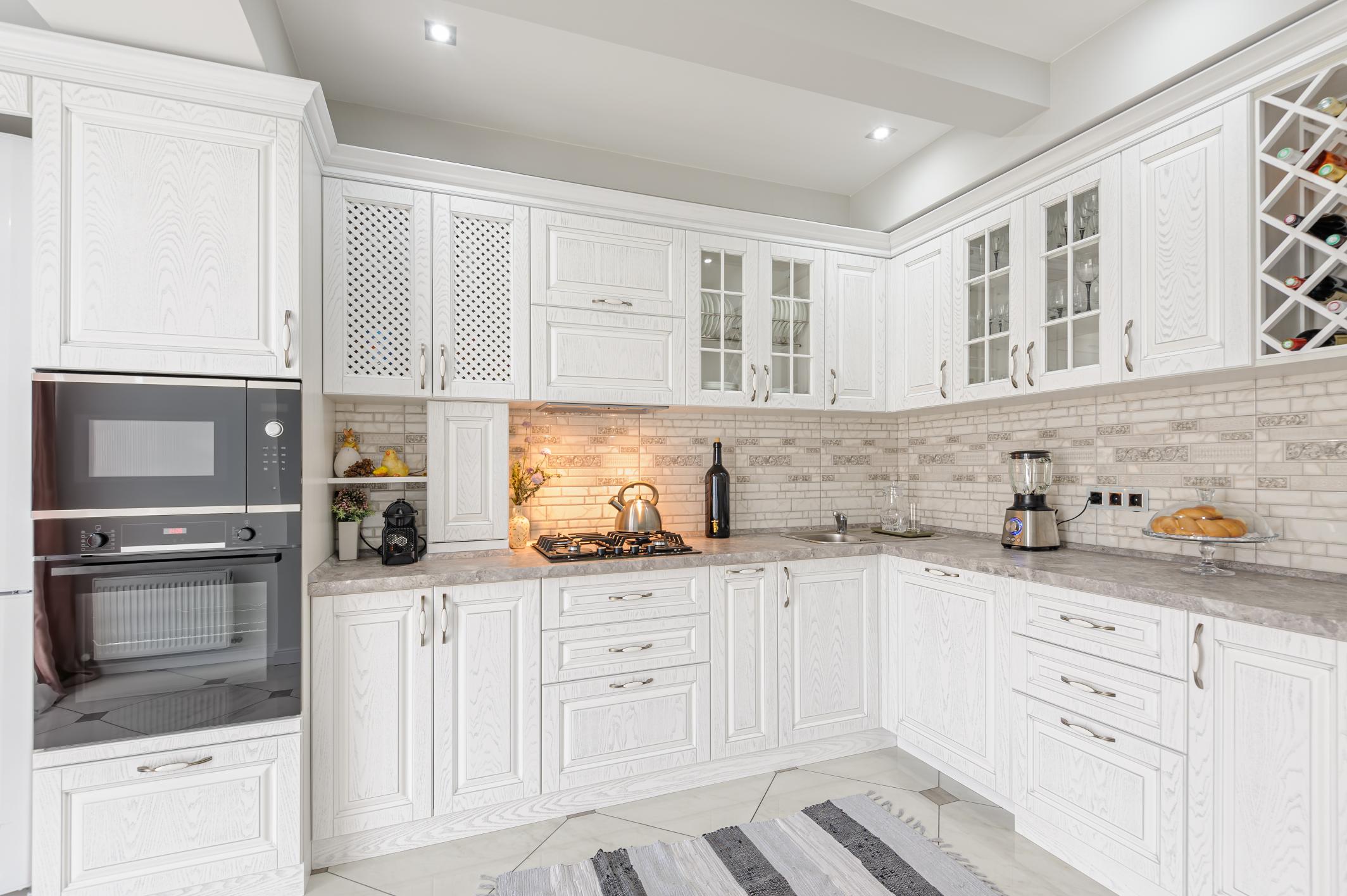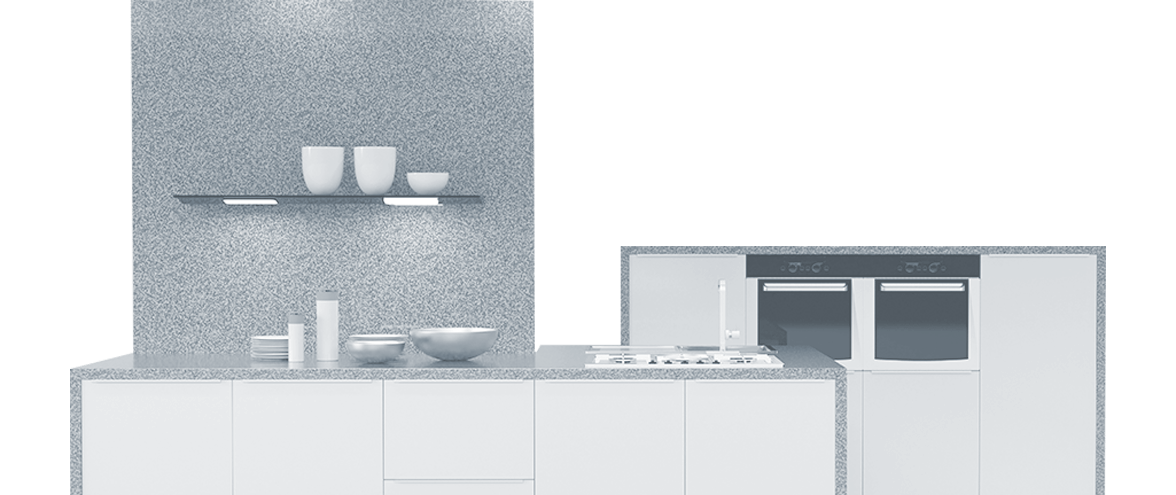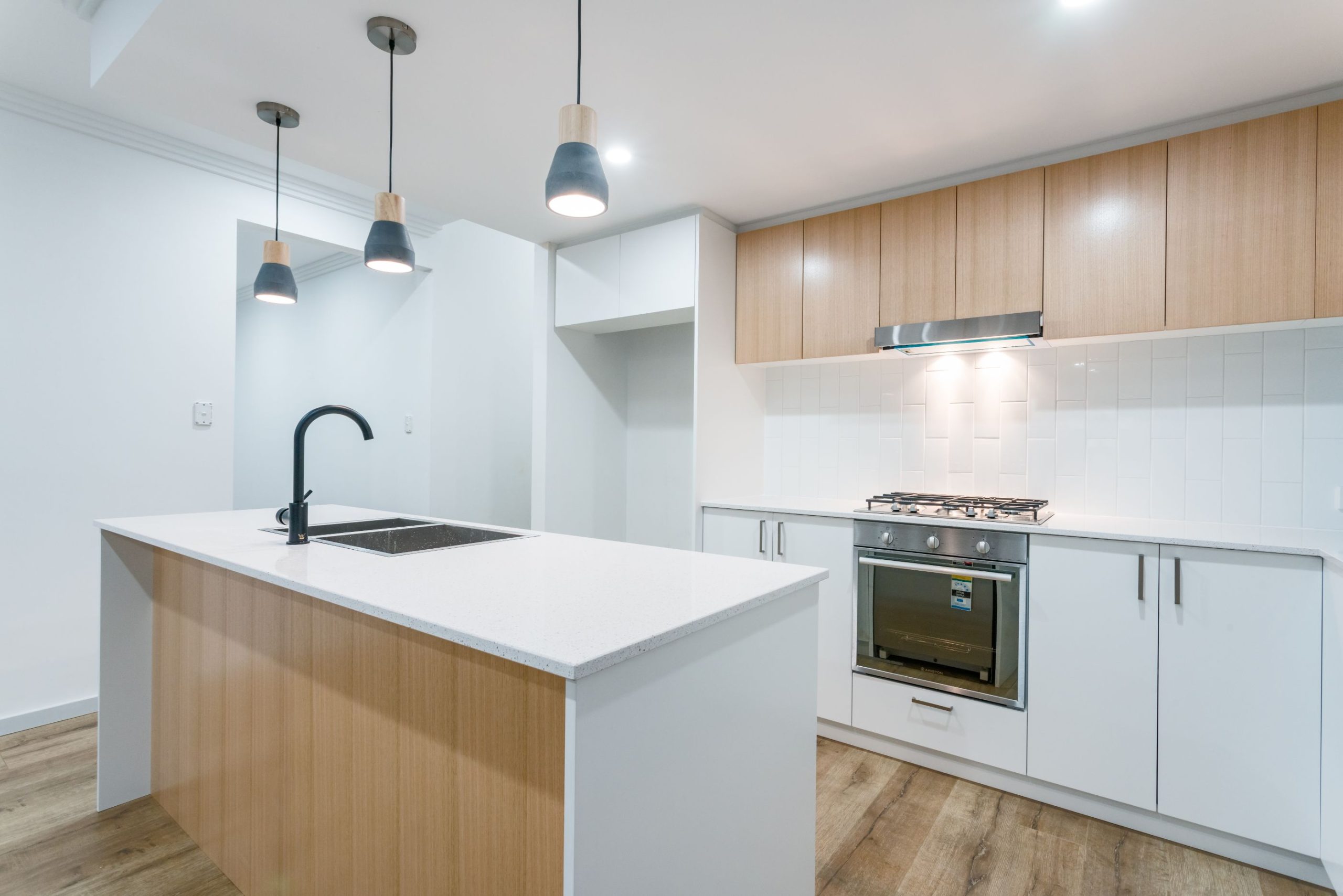
Are you planning kitchen renovations in Perth or designing your new kitchen and feeling overwhelmed by the vast choice of benchtop materials available? Whether you’re an interior design enthusiast or simply a homeowner wanting an upgrade, this comprehensive guide will help you navigate the wide range of stone benchtops, their unique features, and important factors to consider when choosing the style perfect for your home.
Why Choose a Stone Benchtop?
Stone benchtops, both natural and engineered, are increasingly popular choices for modern kitchens for a vast range of reasons. A favourite in kitchen design, stone benchtops offer a multitude of benefits, including bringing an element of luxury to any kitchen and offering remarkable durability. Some types are also resistant to heat, scratches and stains, making them an excellent investment. With a wide array of styles and colours to choose from, they can be custom-designed to suit any kitchen style.
Once you’ve compared different countertop options such as stainless steel, timber, laminate benchtops etc. and decided that a beautiful stone benchtop is a style for your kitchen, it’s time to begin your research into what type of stone benchtop will suit your needs best.

Main Factors to Consider When Making Your Choice
When deciding what material would make the best stone benchtops for your kitchen, there are a few important things to consider:
- Style of the kitchen: Your benchtop should complement the overall style of your kitchen space. For instance, granite and engineered stone are excellent choices for contemporary kitchens, while marble works well in classic or traditional settings.
- Durability: Consider how much wear and tear your kitchen benchtop will face. Granite, and engineered quartz offer high durability.
- Maintenance requirements: Some natural stone benchtops, like marble, require more maintenance due to their porous nature. If you’re not keen on high maintenance, engineered stone benchtops could be a better choice.
- Cost: Engineered stone is more suited to those on a tight budget, while natural stone benchtops often come at a higher cost.
We understand that making these decisions can be overwhelming. If you need a hand selecting and designing the perfect stone benchtops in Perth for your home, reach out to the experienced team at Casvino Kitchen today!
What’s the Difference Between Natural and Engineered Stone?
Natural and engineered stone are two distinct types of materials used for benchtops. Both types offer distinct advantages, and the choice between them depends largely on personal preference and specific kitchen needs.
Natural Stone
Natural stone, such as granite or marble, is sourced directly from nature, cut into slabs, and polished for use. Each piece of natural stone is unique, boasting individual patterns and colours.
As natural stone is a porous material, it can be more susceptible to stains, and requires higher levels of maintenance than engineered stone. To keep natural stone benchtops in optimal condition, they require regular sealing to create a non-porous surface that resists staining and moisture absorption.
Engineered Stone
On the other hand, engineered stone is man-made, primarily from quartz mixed with resins and pigments. This process allows for a more uniform appearance and a vast array of colour options. Engineered stone is non-porous and known for its durability, making it resistant to stains and requiring less maintenance than some natural stone benchtops.

Types of Natural Stone Benchtops
If you’ve decided a natural stone benchtop is for you, next it’s time to decide what type of natural stone will fit your needs. Below we’ve outlined the pros and cons of the most common options:
Granite
Advantages: Granite is one of the hardest natural stones, making it exceptionally durable and resistant to scratches. It also withstands heat well, so hot pots and pans won’t damage the surface. Each granite slab is unique, offering a wide variety of patterns and colours.
Disadvantages: Granite is a porous material, which means it can absorb liquids if not properly sealed, leading to potential staining. It requires regular sealing to maintain a non-porous surface.
Marble
Advantages: Marble is highly valued for its luxurious aesthetic. It’s often associated with elegance and sophistication due to its smooth surface and distinctive veining.
Disadvantages: Marble is softer and more porous than granite, making it prone to scratches and staining. Like granite, it requires regular sealing to protect its surface. Additionally, marble benchtops are usually on the higher end of the cost spectrum.
Travertine
Advantages: Travertine has a unique, earthy appearance that can bring a warm and rustic look to a kitchen. It’s relatively durable and can last for a long time when properly maintained.
Disadvantages: Travertine is more porous than both granite and marble, making it susceptible to staining and requiring regular sealing. It’s also prone to etching from acidic substances like lemon juice or vinegar.
Limestone
Advantages: Limestone offers a softer look compared to other natural stones, with its neutral colours and subtle patterning. It can blend well with various kitchen styles.
Disadvantages: Like travertine, limestone is softer and more porous, making it susceptible to scratches, stains, and etching. It requires regular maintenance and careful use to keep it in good condition.
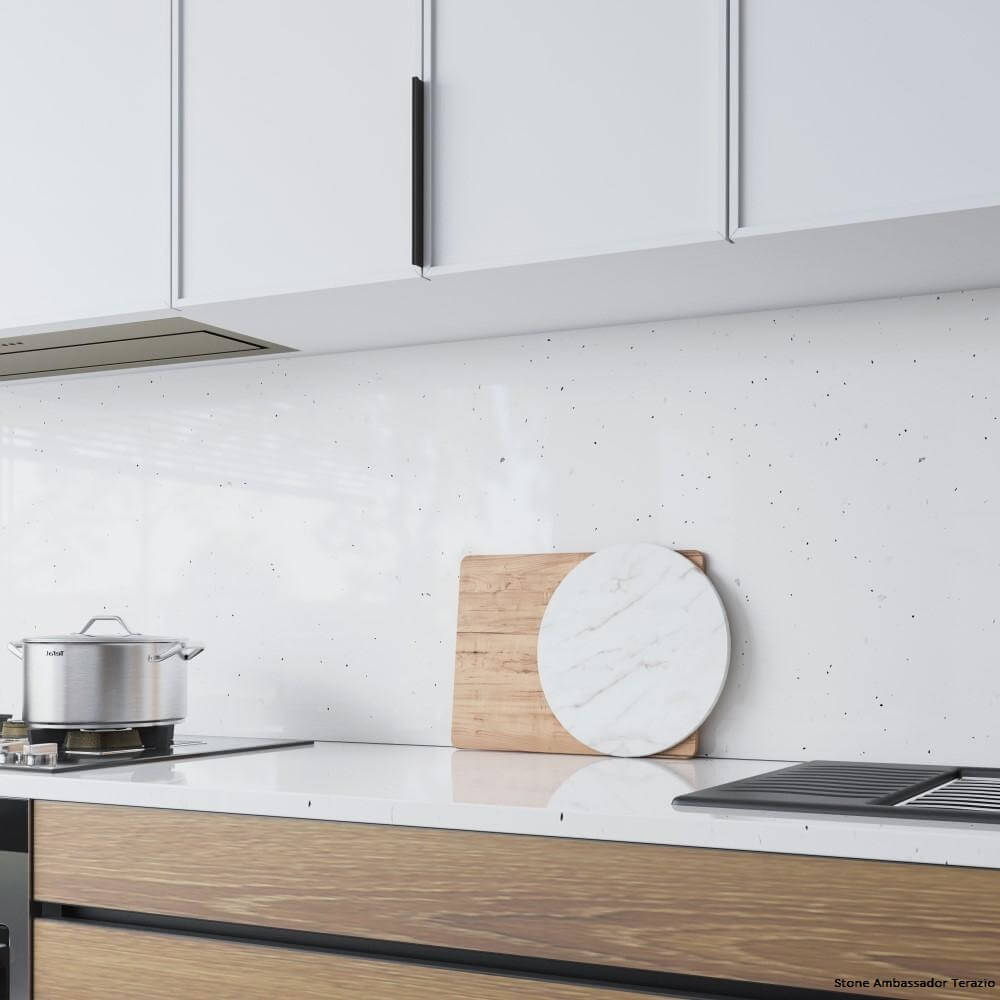
Types of Engineered Stone Benchtops
If you’ve decided on an engineered stone benchtop, fantastic! Next it’s time for you to choose what type of engineered stone you want to feature in your kitchen. Below we’ve outlined the pros and cons of some of the most common options.
Engineered Quartz
Advantages: Quartz benchtops are made from one of the hardest minerals on earth, making them incredibly durable and resistant to scratches and heat. They are non-porous, meaning they are resistant to staining and do not require sealing. Quartz benchtops come in a vast array of colours, and the finish is more uniform than natural stone, which some homeowners prefer. Engineered quartz benchtops can also be made to replicate the look of natural stones, such as marble.
Disadvantages: While quartz is resistant to heat and stains, it’s not entirely heat-proof. Prolonged exposure to heat can cause damage, so it’s still advisable to use trivets or heat pads. Quartz can also discolour over time when exposed to direct sunlight.
Porcelain
Advantages: Porcelain benchtops are extremely durable and resistant to scratches, heat, and UV light. They’re also non-porous, making them resistant to stains. Porcelain slabs can be made to look like natural stone, wood, or even concrete, providing a wide range of design possibilities.
Disadvantages: While porcelain is durable, it can chip or crack upon hard impact, and repairing it can be difficult. Also, the colour of the benchtop is only on the surface, so any chips will show the material’s true colour underneath.
Personal Preference is Key
Choosing the perfect stone benchtop for your kitchen is a highly personal decision. It’s a balance of aesthetics, practicality, budget, and lifestyle needs. You might be drawn to the timeless elegance of marble, the robust durability of granite, or the low-maintenance convenience of engineered stone. Each material has its unique characteristics, advantages, and considerations. Therefore, understanding these aspects is crucial in making an informed decision.
Ultimately, the perfect stone benchtop is one that not only enhances the visual appeal of your kitchen but also aligns with your everyday needs and preferences, providing a functional workspace for years to come.
Need Help to Make Your Decision?
Choosing the best stone benchtops for your kitchen is a huge decision, and with so many factors to think about, often it’s best to get help from kitchen design experts. At Casvino Kitchen, we’re committed to helping you navigate these factors and find a benchtop that you’ll love every time you step into your kitchen.
Contact our experienced team today to see how we can help you make an informed decision about your stone benchtop, and bring you your dream kitchen.
